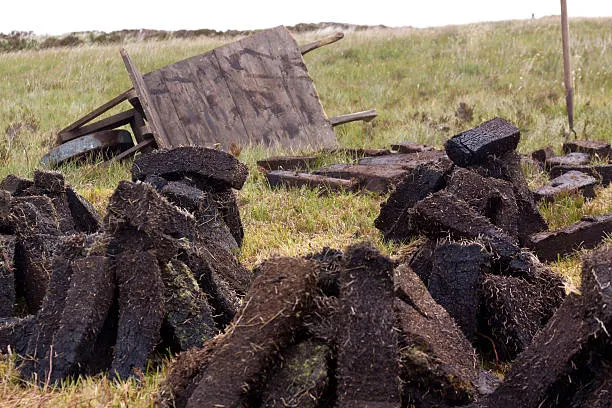Why Going Peat-Free is the Future of Ethical Gardening (And What to Use Instead)-plantify
Introductio:
Gardening is often seen as a way to connect with nature, but did you know that some common gardening practices are actually harming the environment? One such practice is the use of peat moss , a popular soil amendment derived from ancient peat bogs. While peat has long been favored for its water retention and nutrient-holding properties, harvesting it comes at a high environmental cost.
In this post, we’ll explore the ethics of peat-free gardening , why peat bogs are so important to our ecosystem, and what sustainable alternatives you can use instead — all while keeping your garden thriving. Whether you're an urban gardener or a seasoned horticulturist, making the switch to eco-friendly gardening products is a powerful step toward sustainability.
The Problem with Peat Moss
Peat moss is harvested from peatlands , which are among the most valuable and sensitive ecosystems on Earth. These wetland habitats store vast amounts of carbon — more than all the world's forests combined — helping to regulate the global climate. However, when peat is extracted for commercial use in gardening, these carbon sinks are destroyed, releasing CO₂ into the atmosphere and accelerating climate change.
Moreover, peatlands are home to unique flora and fauna. Draining and harvesting them leads to biodiversity loss and habitat destruction. Despite this, peat remains widely used in potting soils and seed-starting mixes due to its moisture-retaining qualities.
Key Takeaway : Using peat moss contributes to environmental degradation and undermines global efforts to reduce carbon emissions.
The Rise of Peat-Free Gardening
As awareness grows about the environmental impact of peat extraction, more gardeners and eco-conscious consumers are embracing peat-free gardening . This movement encourages the use of alternative growing media that are renewable, sustainable, and just as effective — if not better — than peat-based products.
Going peat-free isn’t just an ethical choice; it’s also a practical one. Many alternatives offer superior drainage, improved aeration, and reduced dependency on non-renewable resources.
Sustainable Alternatives to Peat Moss
If you’re ready to make the switch, here are some of the best peat-free substitutes for your garden:
1. Coconut Coir
Derived from coconut husks, coconut coir is a renewable byproduct of the coconut industry. It holds moisture well, improves soil structure, and is pH-neutral. Unlike peat, which is acidic, coir supports a wide range of plants.
🌱 Bonus Tip : Try making your own DIY coconut coir seed starters using Plantify’s easy-to-follow guide here .
2. Composted Bark
Bark from sustainably managed forests can be composted and used as a soil conditioner. It enhances aeration and adds organic matter without disturbing delicate ecosystems.
3. Leaf Mold
Made by decomposing leaves over time, leaf mold is a free and abundant resource for backyard gardeners. It enriches soil and improves moisture retention naturally.
4. Worm Castings
Also known as vermicompost, worm castings are rich in nutrients and beneficial microbes. They enhance plant growth and improve soil health without any negative environmental impact.
5. Biochar
This charcoal-like substance is made from organic waste and helps retain nutrients and water in the soil. Plus, it sequesters carbon, making it a doubly green option.
How to Transition to Peat-Free Gardening
Switching to peat-free gardening doesn’t have to be overwhelming. Start small by replacing peat-based potting mixes with coir or compost-based alternatives. You can also try making your own seed-starting mix using Plantify’s guide to coconut coir seed starters here .
Over time, incorporate more sustainable practices like composting kitchen scraps, mulching with natural materials, and choosing organic fertilizers.
The Bigger Picture: Ethics in Gardening
The ethics of gardening extend beyond just avoiding peat. As stewards of the land, gardeners have a responsibility to minimize their environmental footprint. Choosing organic gardening methods , supporting local biodiversity, and reducing chemical inputs are all part of a holistic approach to ethical gardening.
By going peat-free, you're not only protecting vital ecosystems — you're also setting an example for others and contributing to a larger shift toward sustainability in the horticultural industry.
Final Thoughts
Peat-free gardening is no longer just a niche movement — it’s a necessary evolution in how we grow plants. With so many viable alternatives available, there’s no reason to continue relying on peat moss. Making the switch benefits both your garden and the planet.
So, whether you're starting seeds indoors or amending your garden beds, consider giving peat the boot and embracing eco-friendly options like coconut coir, compost, and biochar. Together, we can cultivate beauty and abundance without sacrificing our planet’s future.






